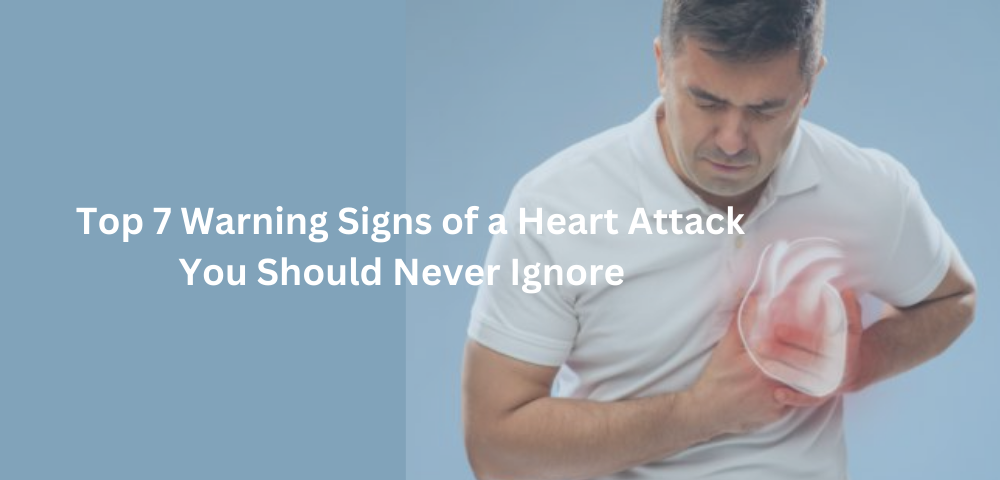Heart attacks can strike suddenly, but often, the body gives warning signs before the event occurs. Recognizing these early symptoms can save lives. Unfortunately, many people ignore or misinterpret these signs, leading to delayed medical intervention. Understanding the top warning signs of a heart attack is essential to act quickly and seek immediate help.
- Chest Pain or Discomfort
Chest pain is the most common and recognizable symptom of a heart attack. It often feels like pressure, tightness, fullness, or squeezing in the center or left side of the chest. This discomfort may last more than a few minutes or come and go. If you experience unexplained chest pain, seek medical attention immediately.
- Shortness of Breath
Difficulty breathing or shortness of breath can occur before or during a heart attack. It may happen with or without chest discomfort. This symptom indicates that your heart isn’t pumping blood effectively, leading to a lack of oxygen in your body.
- Pain in Other Areas of the Body
Heart attack pain isn’t limited to the chest. It can radiate to other parts of the body, including:
One or both arms
- Back
- Neck
- Jaw
- Stomach
This radiating pain is often ignored, especially if it’s mild or intermittent, but it should never be dismissed.
- Cold Sweats
Breaking out into a cold sweat without physical exertion can be a warning sign of a heart attack. This reaction is your body’s response to the stress of the heart not functioning correctly.
- Nausea or Lightheadedness
Feeling nauseated, vomiting, or experiencing dizziness can indicate a heart attack, especially in women. These symptoms often accompany chest pain but can also occur independently.
- Fatigue
Unusual and unexplained fatigue, especially in women, can be an early warning sign of a heart attack. If simple activities, like climbing stairs or walking short distances, cause extreme tiredness, it could be a red flag.
- Heart Palpitations
A sensation of the heart racing, skipping beats, or beating irregularly can be a symptom of an impending heart attack. While occasional palpitations are common, persistent or severe episodes warrant medical evaluation.
When to Seek Medical Help
If you or someone around you experiences any of these symptoms, especially chest pain combined with shortness of breath, nausea, or radiating pain, call emergency services immediately. Time is critical during a heart attack, and prompt medical intervention can save lives.
Preventing Heart Attacks
While some risk factors like age and family history are beyond control, many heart attacks can be prevented through lifestyle changes:
- Maintain a balanced diet low in saturated fats.
- Engage in regular physical activity.
- Manage stress through relaxation techniques.
- Avoid smoking and limit alcohol intake.
- Regularly monitor blood pressure, cholesterol, and blood sugar levels.
Conclusion
Recognizing the early warning signs of a heart attack can make the difference between life and death. Never ignore symptoms like chest pain, shortness of breath, or unusual fatigue.
If you’re experiencing any warning signs or have concerns about your heart health, it’s crucial to consult a specialist. Dr. Akshay Kashid, a leading cardiologist specialist in Baner, Pune, offers expert care and advanced treatments for all types of heart conditions. With extensive experience in diagnosing and treating cardiovascular diseases, Dr. Akshay Kashid is committed to helping patients lead heart-healthy lives.
Don’t wait for symptoms to worsen—schedule a consultation with Dr. Akshay Kashid today and take proactive steps towards a healthier heart.



